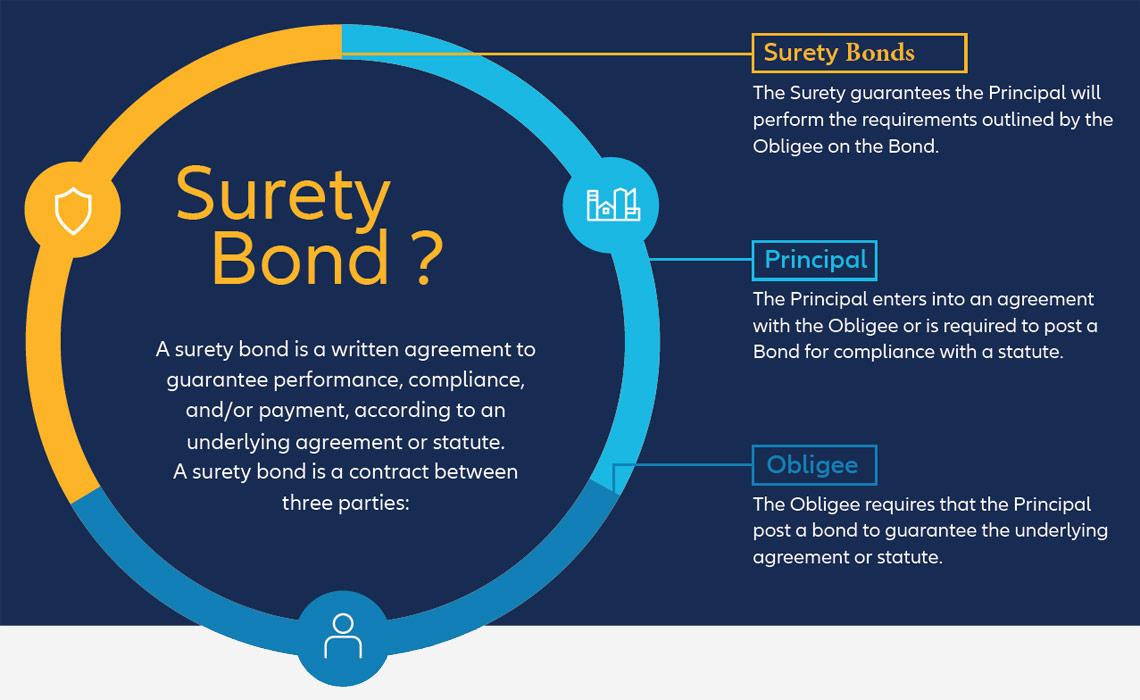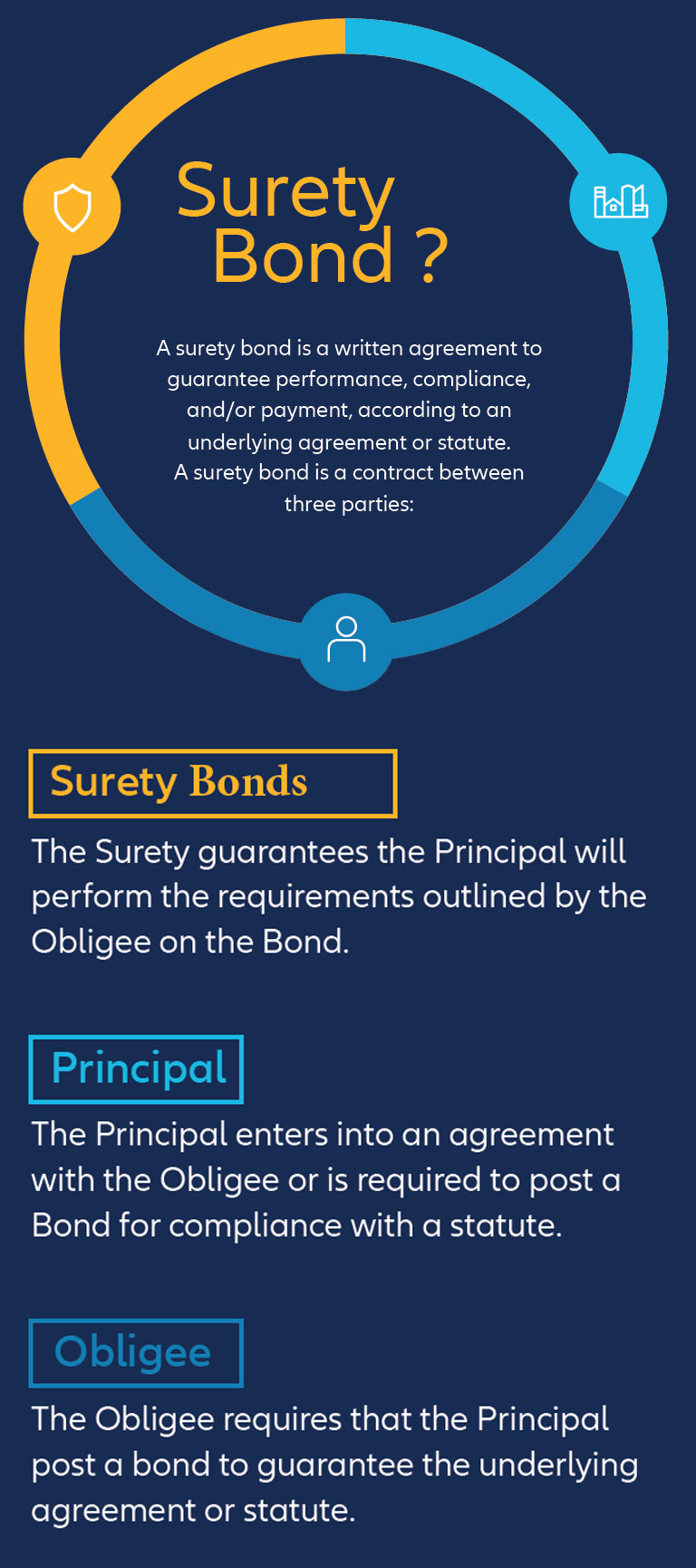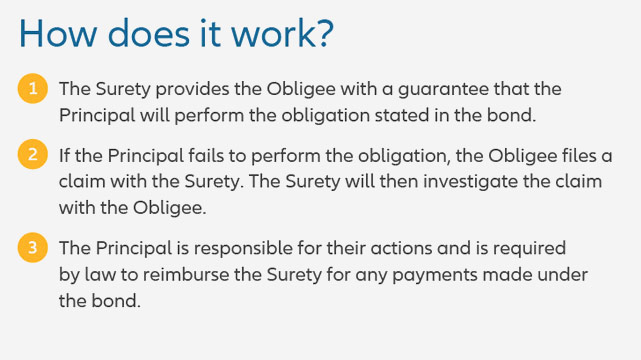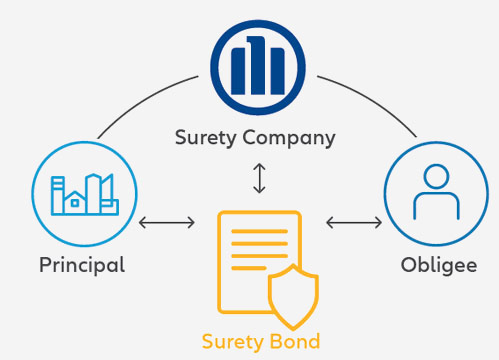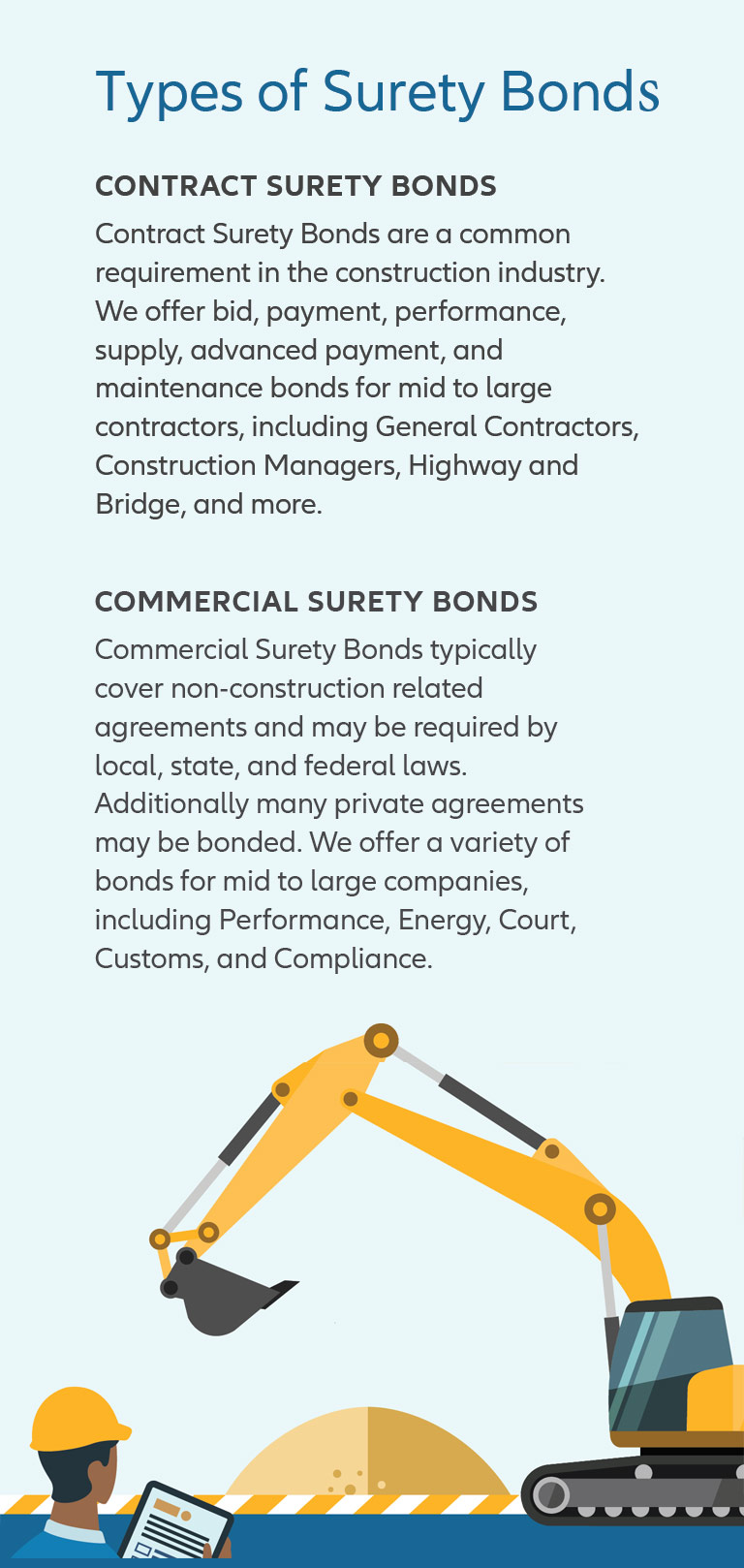Surety Bonds
Contract surety bonds provide financial security and construction assurance to project owners that the contractor is qualified to perform the work and will pay certain subcontractors, laborers, and material suppliers.
Building on our global network, Allianz Trade’ North America team of surety professionals possesses a high level of surety expertise to provide you with a reliable and knowledgeable surety partner.
 Types of Contract Surety Bonds
Types of Contract Surety Bonds
Contract surety bonds guarantee a project owner that a contractor is qualified to perform the work detailed in a contract. They also guarantee that the job will be completed on time and that any subcontractors and suppliers used on the job will be paid.
The company that issues the contract surety bond is responsible for paying the project owner, up to the amount of the bond, if the contractor does not deliver on the guarantee. Bonds are required for federal construction projects worth $150,000 or more, but many private owners also require contract surety bonds for their projects.
Contract surety bonds are a transference of risk from the project owner to the surety company. The most common contract surety bond types are bid bonds, performance bonds, payment bonds, and warranty bonds.
Bid Bonds
When project owners or developers solicit bids from contractors for construction work, they want some sort of protection that will help filter out unqualified contractors and prevent others from submitting unrealistically low bids in order to get the work. Often, the requirement to submit a bid on a project will include a bid bond.
The bid bond guarantees the project owner that the contractor will satisfy the terms of the contract – like providing the appropriate performance and payment bonds. If the selected contractor backs out of the contract, the project owner will be compensated. The amount of compensation from the surety company that issued the bid bond is typically the difference between the winning contractor’s bid and the next lowest bidder.
Performance Bonds
Performance bonds protect project owners from loss if a contractor defaults on the contract. If the project is not completed according to the details of the contract, the project owner can expect compensation from the surety company. Performance bonds provide guarantees that the project will be completed on time, as stipulated in the contract.
Payment Bonds
Payment bonds work along with performance bonds and guarantee everyone on the job gets paid. If a supplier or subcontractor were not paid, they might put a lien on the project to get the money they are owed. With payment bonds, the project owner does not have to worry about such liens. The surety bond issuer guarantees the suppliers and subcontractors are paid if the contractor defaults on those obligations.
Warranty Bonds
Seldom required, warranty bonds compensate the project owner if there is a flaw in the quality of materials or standard of workmanship. During the warranty period, any discovered defects are either fixed or the project owner is compensated. Warranty bonds, also called maintenance bonds, guarantee the quality of the final product.
Trade Credit and Surety Insurance
Trade credit insurance and surety bonds both indemnify companies against losses, but they are two very different products. Trade credit insurance is a tool that can help a business lower its risk for bad debts or unpaid accounts receivable. It covers business-to-business accounts receivable. With trade credit insurance, if a buyer’s payment is late or not paid because of bankruptcy, insolvency or other issue, the policy will pay out a percentage of the outstanding debt.
A surety bond guarantees a contractor’s obligations, as outlined in a contract for work, will be met. A surety bond involves three parties: a principal (the contractor that will perform work), an obligee (the project owner), and a surety. If the principal doesn’t live up to its obligations to pay or perform for the obligee, the obligee is compensated by the surety. Surety bonds represent a type of partnership between a business and a surety. The business promises to perform according to a contract, and the surety guarantees that performance.
